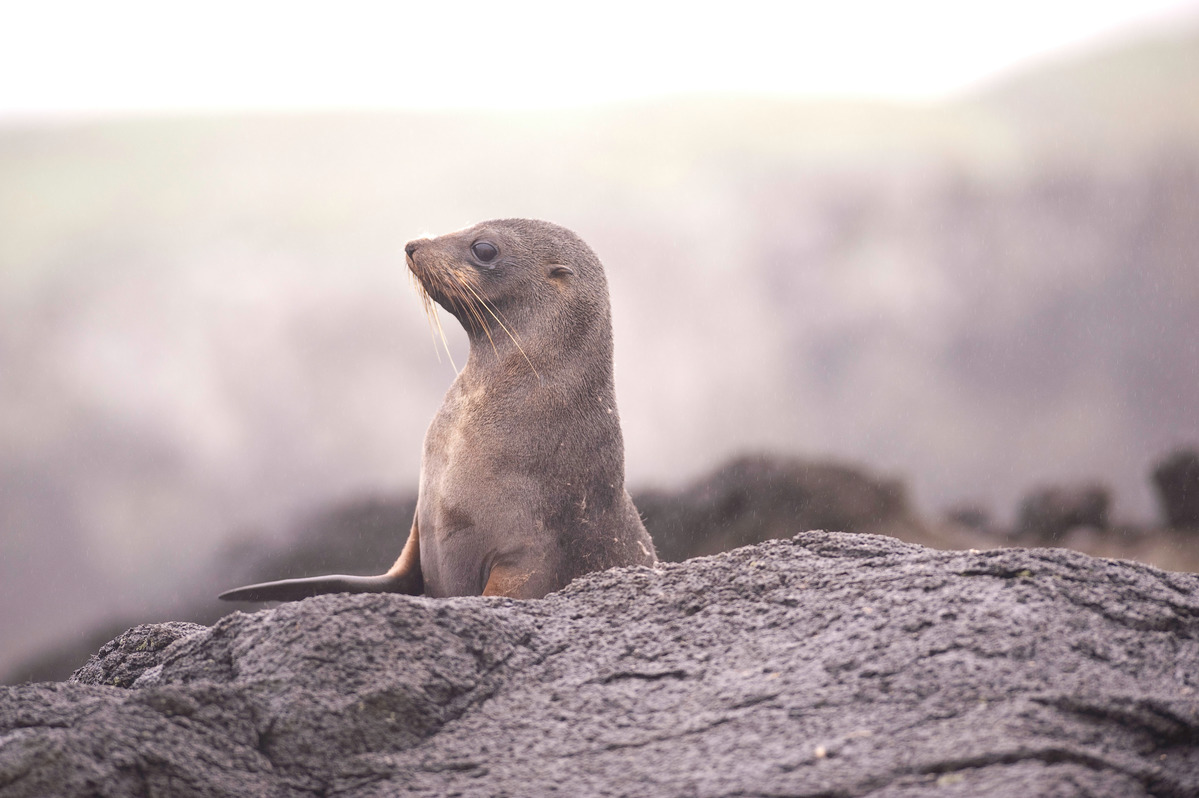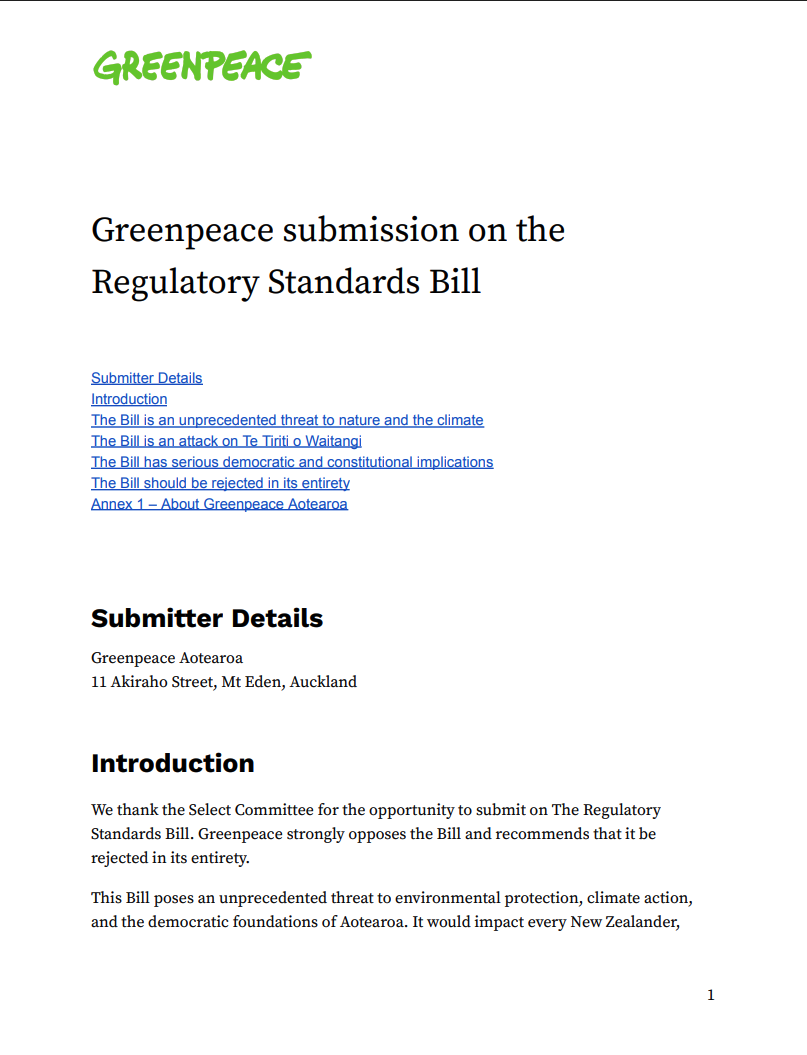Tens of thousands of people are expected to hit the streets of Tāmaki Makaurau on Saturday in protest against the Luxon Government’s controversial Fast-Track Approvals Bill.
The Bill has been labeled a shortcut for industry to bypass environmental protection and remove people’s say on developments in their neighbourhood.
“The fast-track bill puts profits over people and Papatūānuku,” says Greenpeace spokesperson Juressa Lee (Te Rarawa, Ngāpuhi, Rarotonga).
“If passed unopposed, the new law will allow the destruction of the whenua, awa and moana through more mining, dams, roads, drilling and ocean pillaging.
“It will also severely restrict iwi and hapū rights to exercise tino rangatiratanga and deny us all of the knowledge and experiences of experts and local communities that can best inform those projects.
“It is an assault on te taiao, on democracy and on Te Tiriti.”
The Fast-Track Approvals Bill would allow previously prohibited activities – like dumping raw sewage into the ocean – to go ahead. It would also bypass court decisions in order to resurrect previously rejected developments.
Projects that are likely to be back on the cards include seabed mining in the South Taranaki Bight, which has faced a decade of opposition from Ngāti Ruanui, environment groups and fishing companies. This project was ultimately rejected by the Supreme Court.
The Bill also puts unprecedented power in the hands of just three ministers, removing the usual processes for public consultation.
Following a strong challenge laid down by Ngāti Toa in Te Whanganui-a-Tara in May, a coalition of environmental organisations and community groups is now calling on people to hit the streets of Tāmaki Makaurau this Saturday to protect te taiao, Te Tiriti and democracy. The rally will begin at 1pm in Aotea Square, followed by a march down Queen Street.
“Nobody wants to see polluting developments like waste incinerators next to schools and homes in their neighbourhood,” says Lee.
“Nobody wants the moana and ngahere of Aotearoa turned into open cast mines, to see their awa turned into sewers or taonga species condemned to extinction.”
Lee is hopeful that people power will prevail in spite of the Luxon Government’s war on nature and on Te Tiriti.
“Just like the oil industry faced a decade of relentless resistance from iwi, environmental groups and people all over Aotearoa, so too will anyone who would try to use fast-tracking to dig up conservation land, wreck rivers, mine the seabed and override what locals want.
“The oil industry was invited here by the John Key Government but it was rejected by the people. Through nearly a decade of resistance, we sent each of those oil companies home with their tails between their legs. That’s the power of kaitiakitanga – of people standing up to defend their tūpuna awa and maunga and the future for their mokopuna.”
“Here in Aotearoa we have a proud history of peaceful protest. From the Land March hikoi led by Dame Whina Cooper and the Springbok Tour protests against apartheid to the Waiho Papa Moana hikoi against deep sea oil and the 2010 March Against Mining. Time after time, we have marched – shoulder to shoulder – and changed the course of history. On 8 June we will do it again.”
People from all over the country are expected at the 8 June ‘March for Nature’ against the coalition Government’s fast track legislation.
Greenpeace, Forest & Bird, Communities Against the Fast Track, Coromandel Watchdog, Kiwis Against Seabed Mining, and a host of environmental and community groups have organised the march, which kicks off with a rally at 1pm this Saturday, June 8, at Aotea Square. As march day approaches, more groups are joining.
Buses are coming from Coromandel and Raglan. Groups in Hamilton are organising to fill the Te Huia train to demonstrate their support in keeping the line open on their way to the March. Recent polling shows that large percentages of New Zealand voters are concerned about the potential of destruction and corruption posed by the Fast Track Bill.




